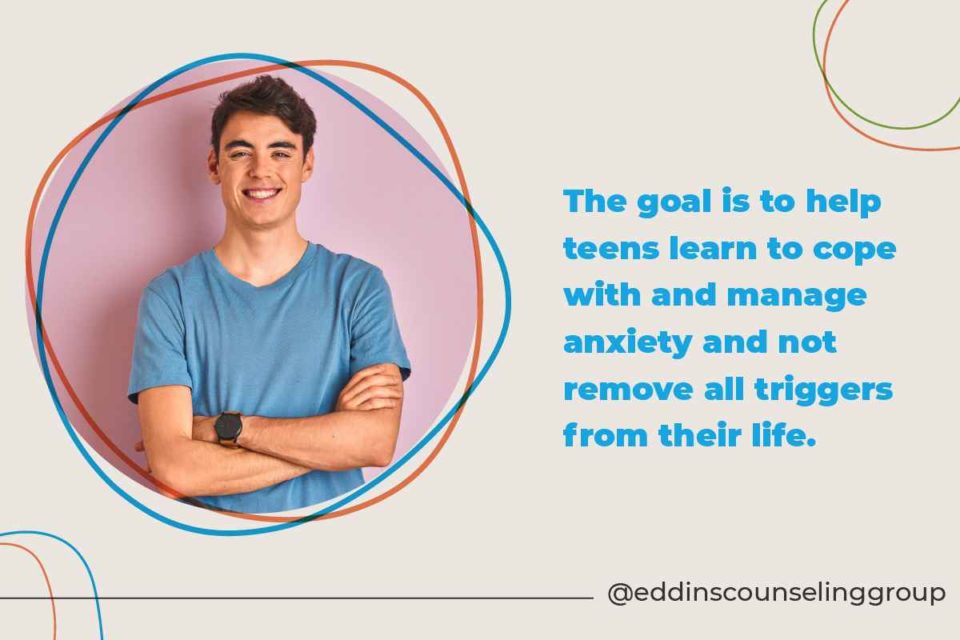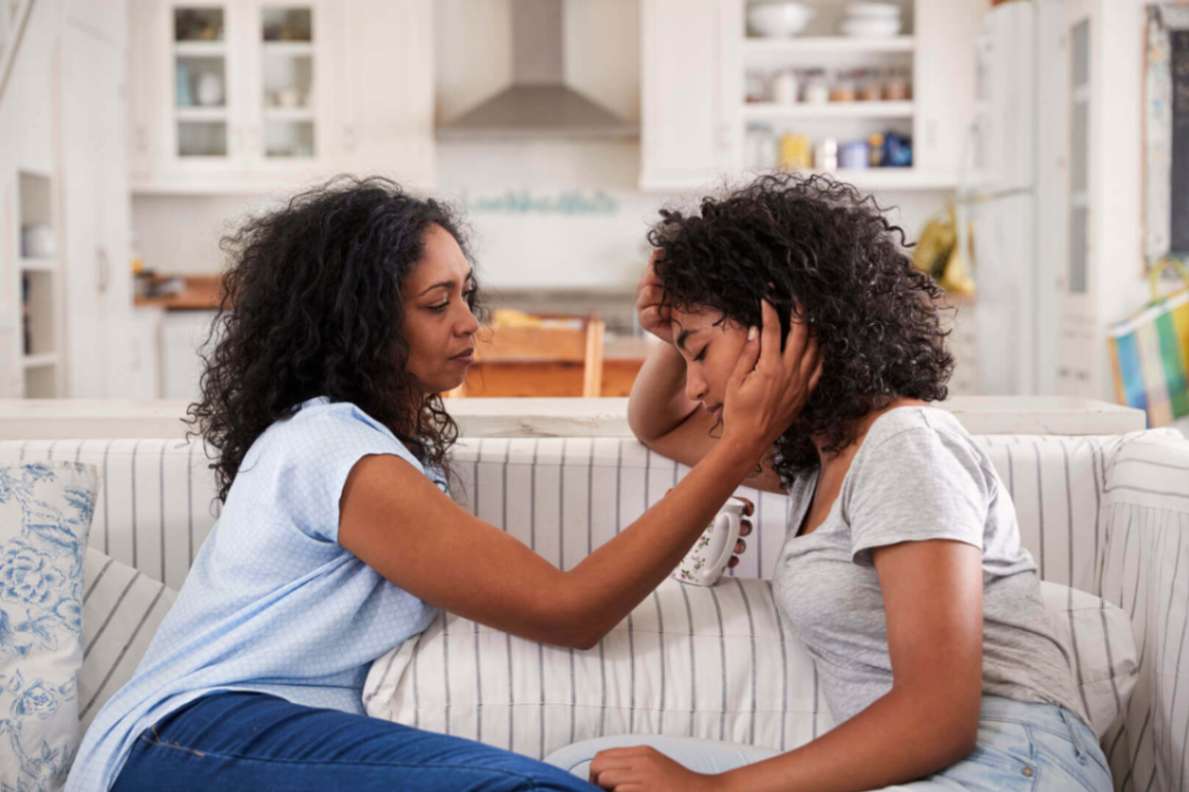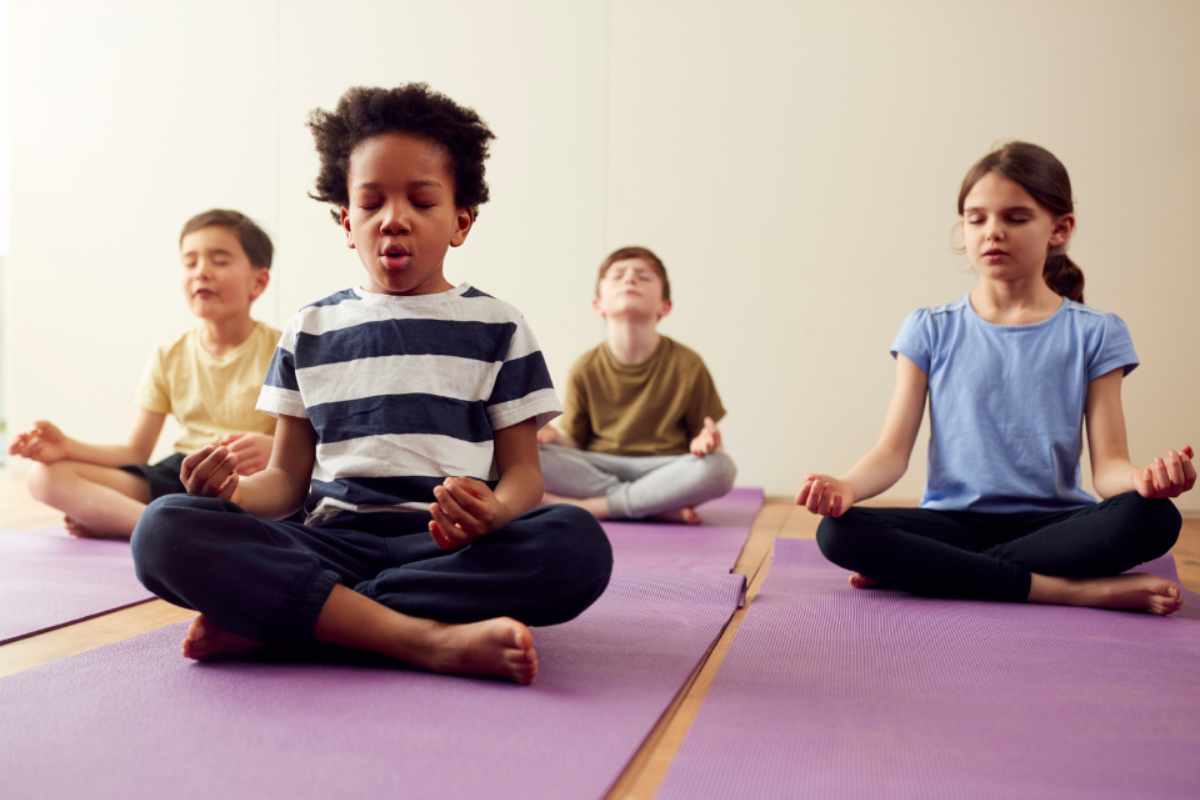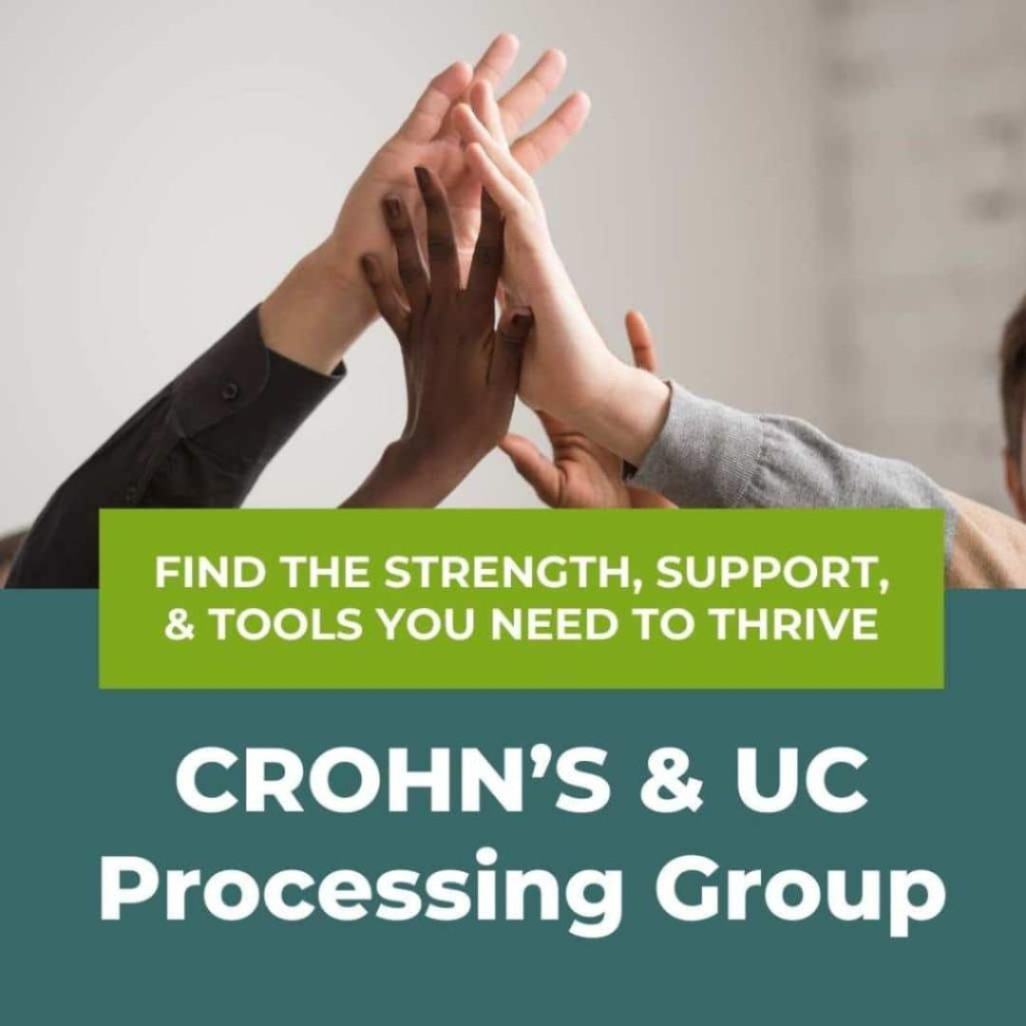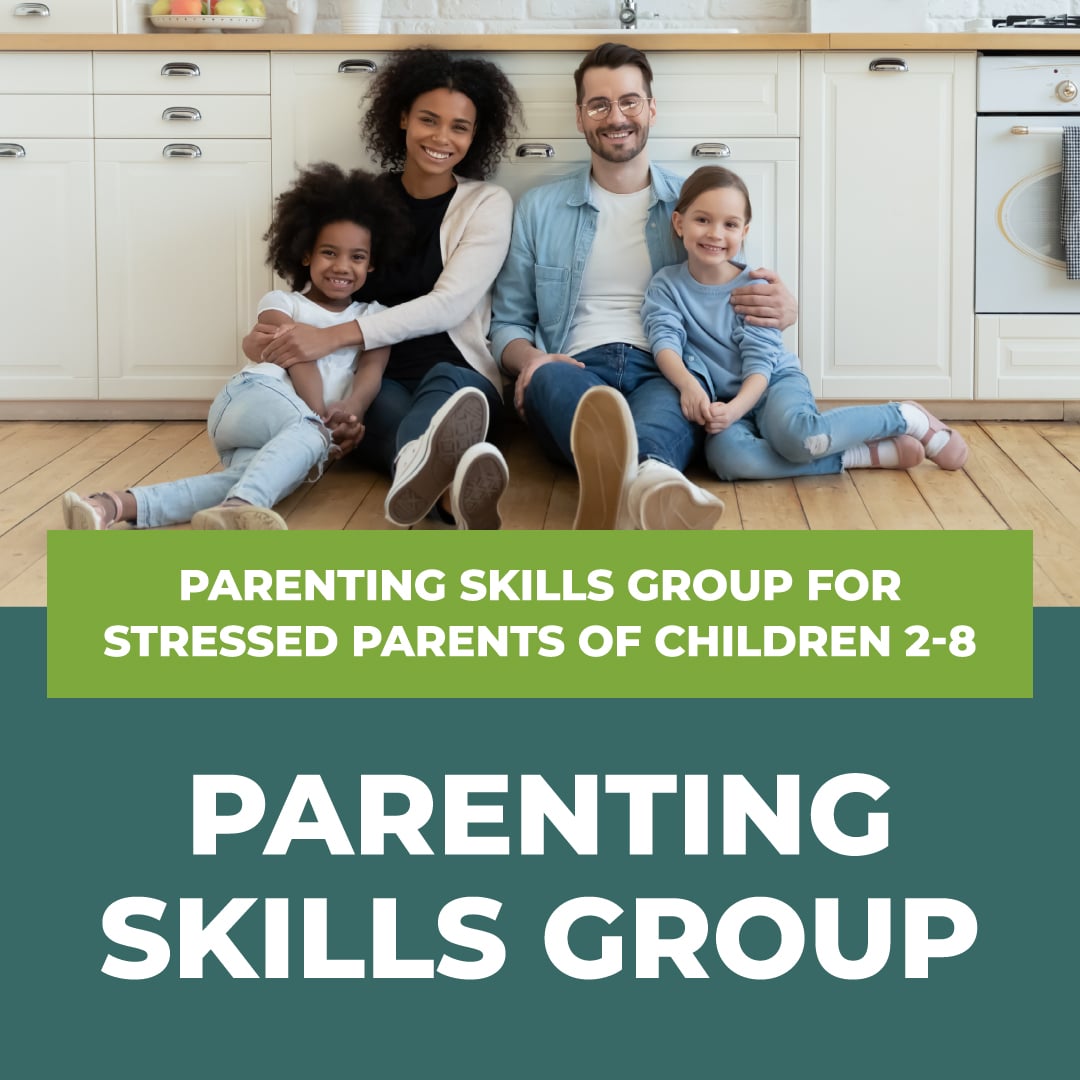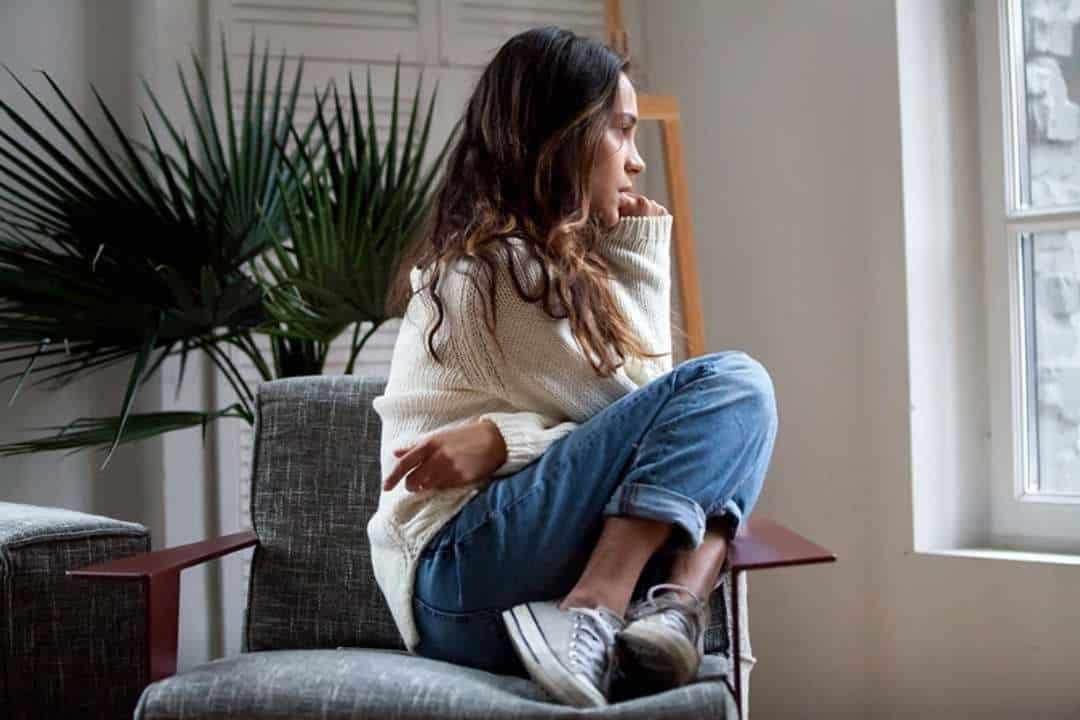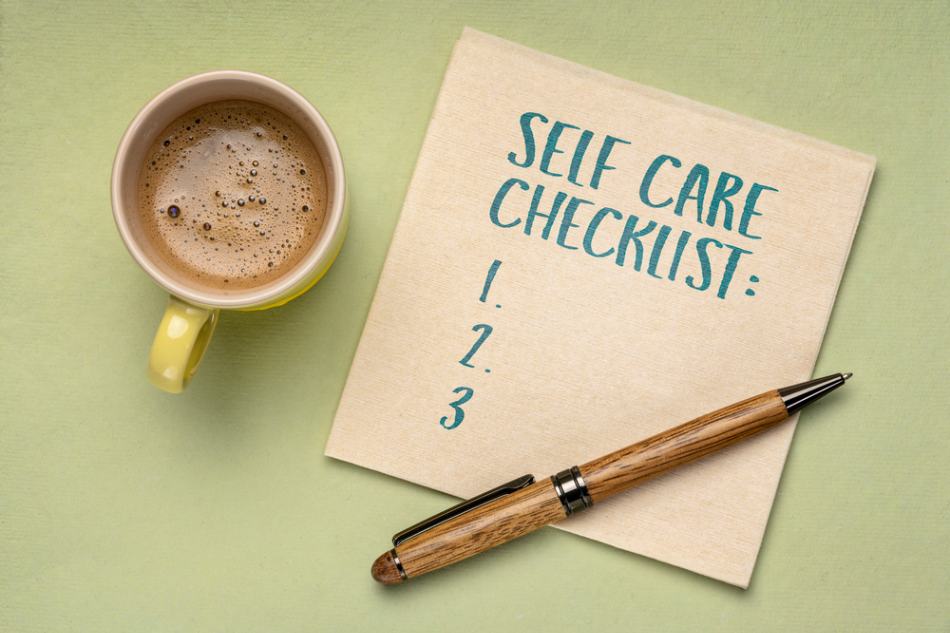November 14, 2019
Webinar: Helping Your Anxious Teen
Written by Rachel Eddins
Posted in Anxiety, Parenting & Family, Teen Counseling, Webinars and with tags: Anxiety, anxiety in teens
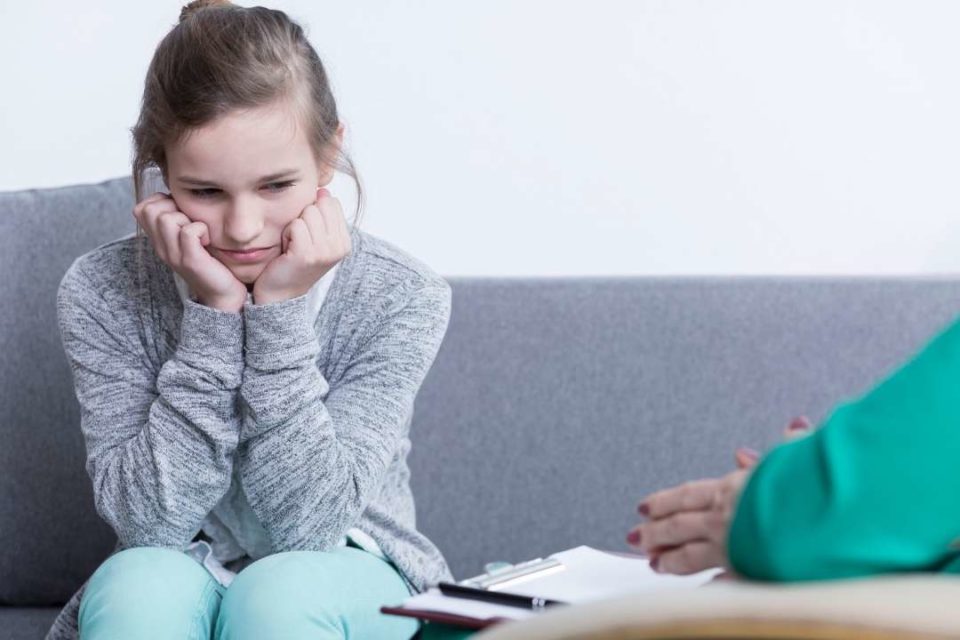
Being a teenager with anxiety is challenging.
As a parent, knowing how to best support your teen can make a huge difference.
Teenagers are exposed to the harshness and comparisons of social media, body image, changing family dynamics, academic pressure, school shootings, etc.
In this talk, you will learn what to look for to identify if your teen is struggling with anxiety and ways to help them manage it.
Facilitated by Holly Lark, LMSW.
Watch a replay of the presentation here.
Learn more about our Anxiety Treatment Services.
Here is a transcript of the webinar:
Helping Your Anxious Teen
Hello. My name is Holly Lark. I work with clients around issues including but not limited to anxiety, depression, perfectionism, stress, relationship concerns, and life transitions. I work with adolescents in all different areas.
I worked at schools, with kids kicked out of the school district for behavioral problems, and kids on probation. This is my fourth year as PDA doing emotional support. I also work at a private practice one day a week.
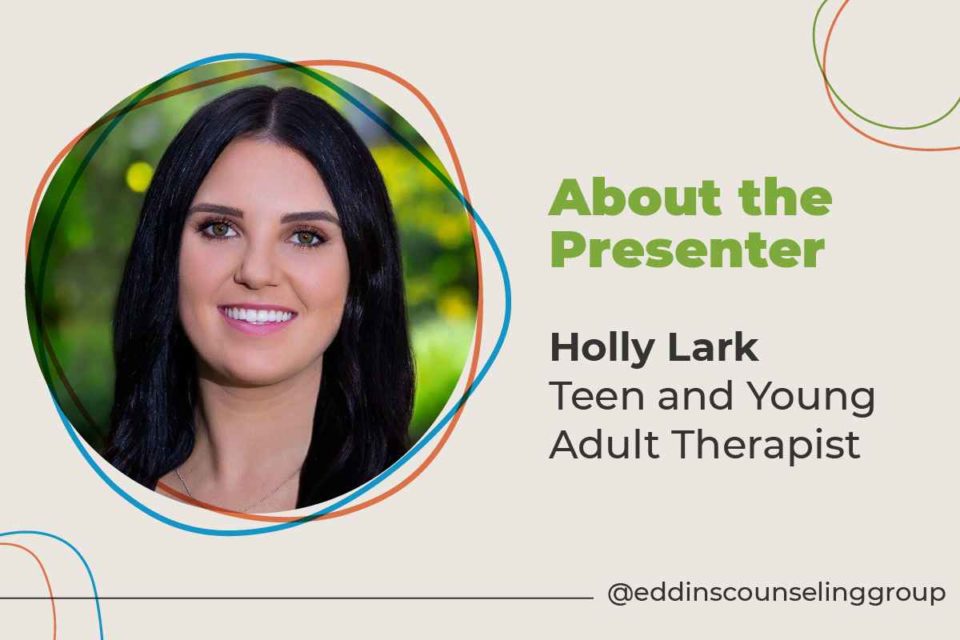
Anxiety Is The Most Common Mental Health Disorder
Anxiety is the most common mental health diagnosis and it is a normal emotion. Just because somebody is feeling anxious doesn’t mean that it’s bad. It doesn’t mean it can be something to treat or work on. We feel anxious when there’s a situation that’s triggering us and our emotions become heightened.
That can be helpful when there’s a test and it helps you stay alert or biologically if there was a lion chasing us and you feel anxious to just look at it. Our body, tells us to run. Just because something feels anxious, it’s ok. But when it becomes disproportionate, you’re feeling it all the time, that’s when it can become a diagnosis.
The American Psychological Association (APA) defines anxiety as an emotion characterized by the feeling of tension, worry, thoughts, and physical changes like increased blood pressure.
Anxiety is both physical and emotional. Some teens will really just talk about it emotionally and some will only focus on their physical. And that’s something to look at. If, for example, your teen has some issues, like always having some concerns, or always being sick from school or in the nurse’s office. They might not ever use the term anxiety, but that could be what it is.
Obviously, we want to do medical workups and things of that nature before we target anxiety. But like I said, it can be physical or mental, typically both.
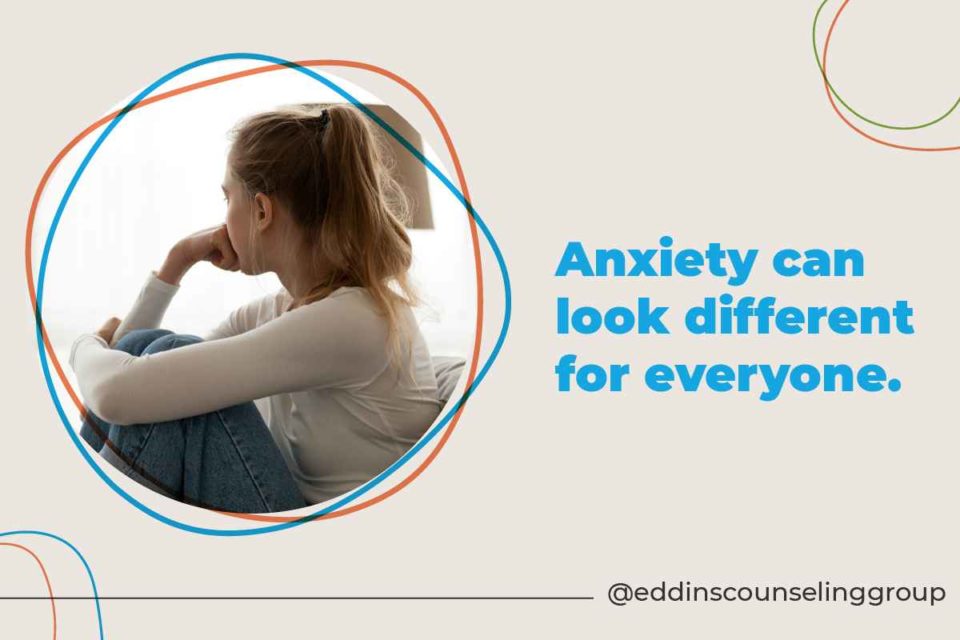
Anxiety can look different for everyone.
Does anybody have something that they see in their teen that they notice? Like, for example, this is how my teen experiences anxiety:
- “She twists her hair. When she’s doing her homework she twists her hair and pulls it.” That can become a separate anxiety diagnosis.
- “He gets angry and starts complaining about everything else around him and what’s going on”. Especially for boys, can sometimes be more acceptable to express anger than say, “I’m really struggling and I’m feeling emotional. I don’t know what’s going on.” And just get mad.
- “Stomachaches all the time.” Those are physical symptoms, not necessarily emotional.
I mean, some kids who are anxious are super high functioning. So they attend all of their classes, they are involved in every activity that you have on weekends, they help their siblings with their homework and they can be extremely uncomfortable, but that’s how they’re coping.
So it’s not all about the teen who is isolated in their room or failing classes. It can look different for everybody. That’s just something to pay attention to. Looking more at the emotion versus how they’re acting and or what is going on at school.
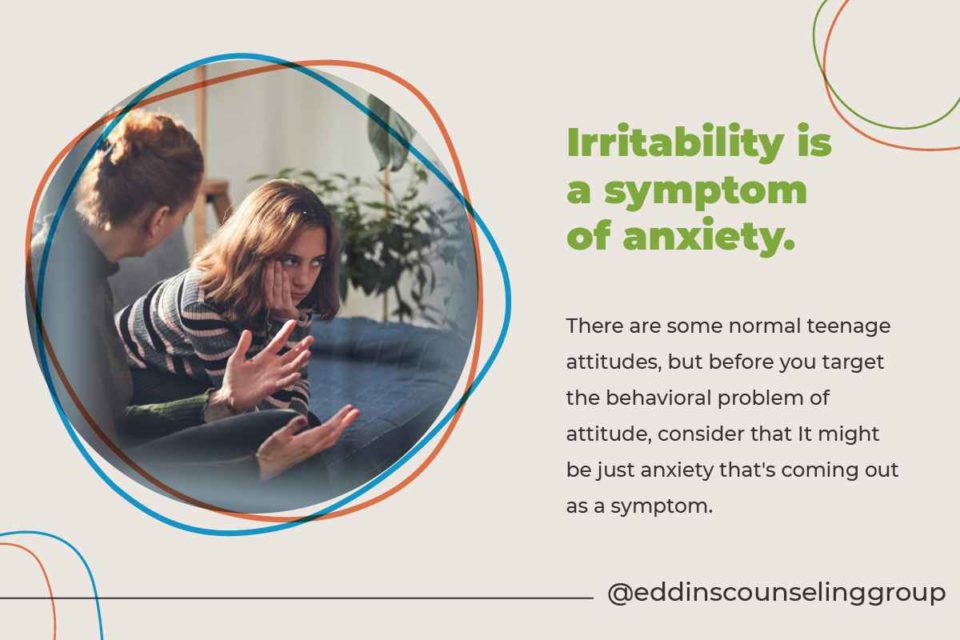
Symptoms of Anxiety
- Restlessness, feeling keyed up or on edge.
- Being easily fatigued.
- Difficulty concentrating or mind going blank.
- Irritability.
- Muscle tension.
- Sleep disturbance (difficulty falling or staying asleep, or restless, unsatisfying sleep).
Some typical symptoms of anxiety include restlessness, feeling keyed up or on edge, pacing, or being easily fatigued. Another symptom is difficulty concentrating, or their mind going blank. That comes up a lot at school so that they can’t focus, they’re really distracted and it could really just be anxiety. It’s not necessarily that they can’t focus, but maybe they’re thinking about something else that’s causing the anxiety.
Irritability is also a big one. I hear a lot from teens that their parents think it’s teen angst and I think there’s a fine line. There are some normal teenage attitudes, but also anxiety can show up. You should keep that in mind before you target the behavioral problem of attitude. It might be just anxiety that’s coming out as a symptom.
Muscle tension and sleep disturbances are also symptoms. So they’re not sleeping, sleeping and having nightmares, or falling asleep disturbances. I should also add issues around food. So that includes food restricting, overeating, or not eating all day so when they get home they binge eat.
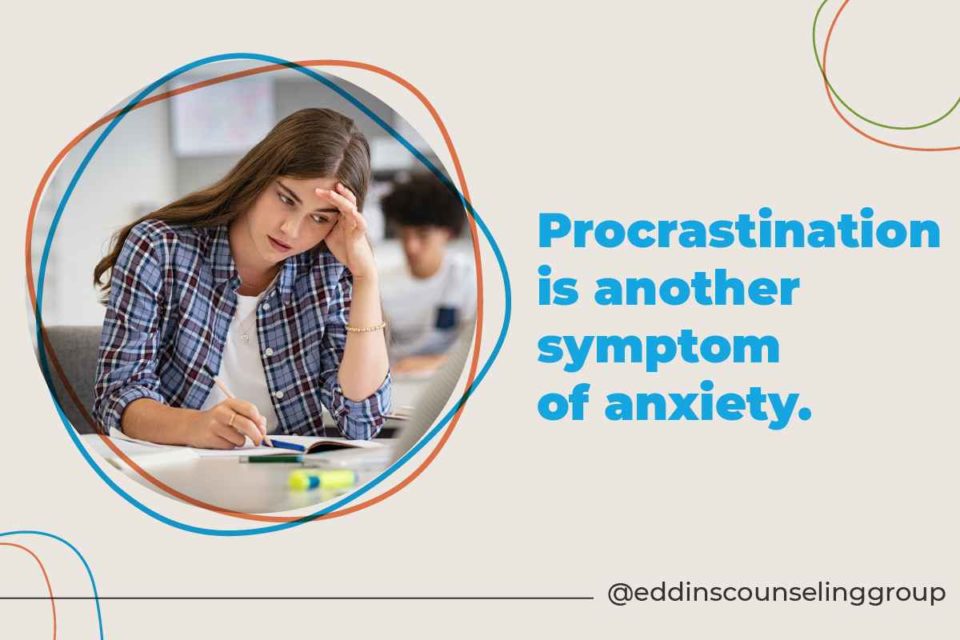
Procrastination is another symptom of anxiety.
When they have a lot of homework and they procrastinate to the point where: “Oh, my gosh, now I’ve got to do it.“And then it’s all an emotional explosion.
I think procrastination, can be so easy. They’re so anxious because they don’t know how to do that homework. They’re playing video games or doing whatever to procrastinate. And the reason they’re doing it is that they’re so anxious about the homework. So instead of targeting procrastinating, which can feel judgmental on their end, ask them: “What are you avoiding?”
A lot of times procrastination is just avoidance of doing something that’s going to make them feel inadequate. If it’s not their best subject or they’re worried about the test.
Nail biting and digging nails and scratching are some additional signs. I’ve also seen headaches and stomachaches. Avoiding activity can be seen in middle school kids.
Additional Signs of Anxiety in Adolescents
- Complaining about headaches or stomach aches
- Avoidance of activities (school, sports, social events)
- Using a phone at inappropriate times
- Shaking body, fidgeting, or inability to make eye contact
- Sometimes mistaken as ADHD in schools
Going to soccer and then they’re saying that they’re too tired to go and have too much homework, (which could be true at times). But just picking up, are they avoiding things that they used to really enjoy? That can not only be a sign of anxiety but also depression.
Using a phone at inappropriate times is another one. It’s a safe way to put a distance between you and the other person. I think they have it at their fingertips, and they’ve grown up with it that way. And so it can a habit, the second they feel uncomfortable they might start to look at or talk to their phone. I mean, part of it can be an internet addiction, but another way to look at it could be anxiety and just paying attention to those things as well.
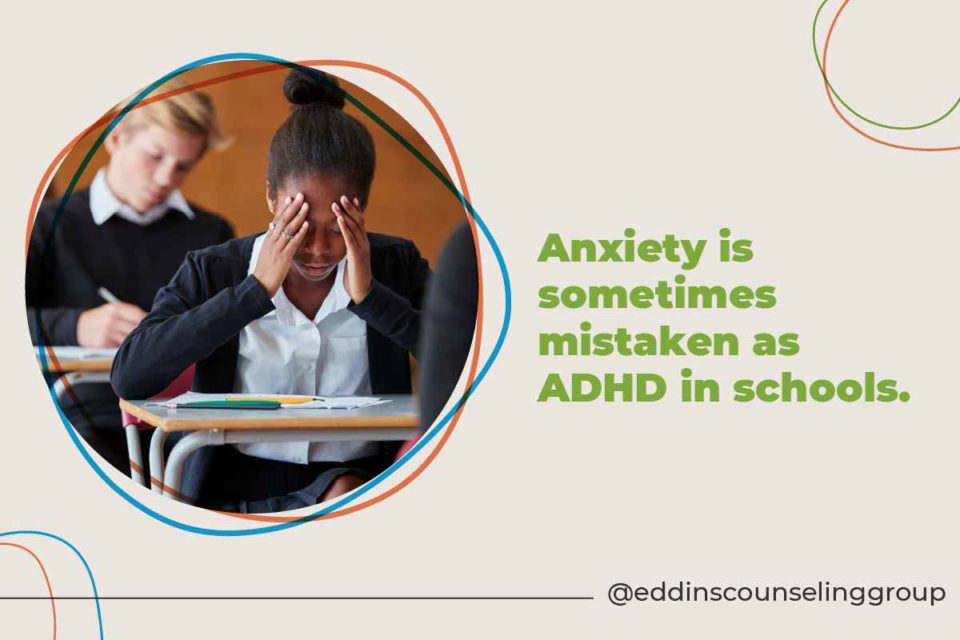
Shaking, fidgeting, and the inability to make eye contact are also physical symptoms.
Another big one that I noticed from working in schools is anxiety being mistaken for ADHD. Every time someone can’t focus, can’t pay attention, or is fidgeting in their seat it’s ADHD.
I’m feeling like there’s a lot more to diagnosing anxiety than treating it as ADHD. It’s a term that’s used so commonly and I’m not dismissing it. And it’s a real diagnosis. People really struggle and medication and therapy could be very helpful. But because everybody’s walking around talking about their ADHD and their medication and it’s like kind of a buzz going on in the schools right now.
I think they are misdiagnosing themselves a lot of times when they may just be anxious and anxiety is tough, but we would treat that differently. So that’s why I want to make a differentiation there and see a different way for certain teens.
Some Anxiety Is Normal
- Anxiety can be helpful in certain situations.
- Make sure they know that they aren’t expected to feel calm and relaxed all the time.
- The goal is to help your child learn how to cope with and manage their anxiety. NOT to remove all triggers from their life.
As I said, some anxiety is normal and it can be helpful in some situations. That’s something I try and explain to them, but getting that at home could be helpful as well. Just because you’re anxious about a test, it doesn’t necessarily mean is a bad thing. If it’s the part where you can’t sleep and they are blanking out on the test, there’s a line.
Some anxiety can be really helpful.
Letting them know they aren’t expected to be relaxed at all times. They shouldn’t always feel zen. It’s ok to have another emotion. We don’t want to be heightened all the time or be heightened beyond what the trigger is. The goal is to help them learn to cope with and manage anxiety and not remove all triggers from their life.
Time management is one of the best ways to treat anxiety from a personal level. If you are feeling anxious, work to manage your time better and organize your life a little bit better to reduce the triggers. But we don’t want to remove them.
For example, if there’s a social event they don’t want to go to: If you see your child shaking and crying and so anxious every time, it’s going to be hard as a parent to make them go because you don’t want to see them in that distress and they’re begging you to not go and they don’t have the coping skills to do it. They may go and break down.
We don’t want to go that route. We don’t want to just send them off and have them break down. We can maybe teach them coping skills and then expose them to the triggers because we’re letting them avoid it all through high school. Once they get to college, they’re not going to have those tools or have the experiences of going and struggling and feeling anxious and working through it and coming home and being able to feel safe again.
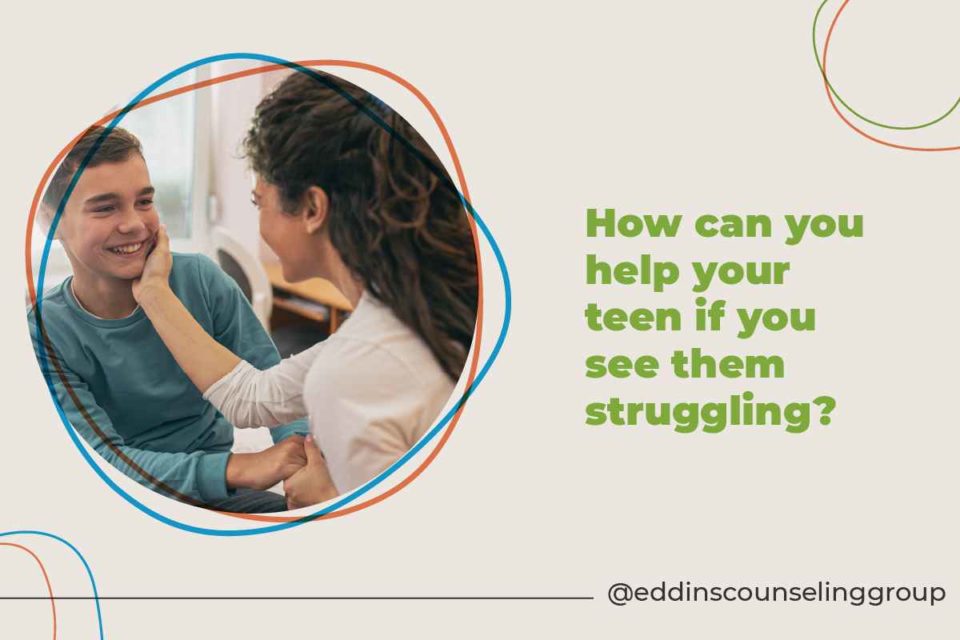
How Can You Help Your Teen If You See Them Struggling?
So how can you help your teen if you see them struggling? What kind of things are you guys trying? Is there anything that’s working or isn’t working?
Comments from parents:
“I downloaded the Calm app and it worked. It has actually been really helpful for me. His anxiety also makes me incredibly anxious. I have a different kind of meditation stuff. I think that you can access some of it for free and that’s how I started. It talks you through how to train your focus on something else. It talks about some anxiety that is actually normal.”
“My daughter runs after school. She also writes in her journal to get out her feelings and makes her own music. She listens to it to try to get away. My son, on the other hand, doesn’t do anything. I saw there was an avoidance of extracurricular activities even though he used to be very active in junior high. There seem to be very different male and female anxiety. The girl seems to be more emotional, and outgoing with emotions, whereas the boy seems to be more suppressive and shut down.”
“My son has sleep anxiety. The busier he is, the better he is. Just having a routine and keeping busy works. The Calm app works for him too. Personally, the more he does, the less anxiety he has.”
“I couldn’t get my son to go to any school dances, so I said to him: “I am going to volunteer with other moms, but don’t come and hang around me at the dance. You will take away my cool points. You stay over there and I’ll stay here. At least I made him get out of the house. So sometimes I have to come up with creative little tricks and be silly about it. That way he doesn’t take things so seriously. “
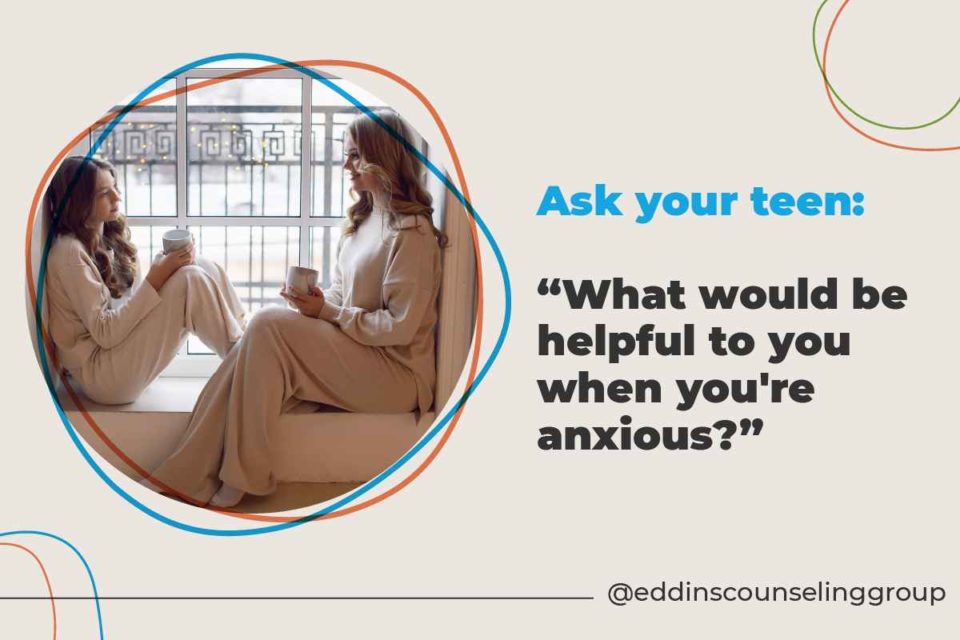
Here are some ways to help teens:
- Ask what they need.
- Pay attention to their feelings.
- Stay calm when your teen is feeling anxious about a situation or event.
- Do not shame or punish them for their anxiety or inability to participate in or complete a task.
- Give praise when they do.
- Keep a routine while still being flexible.
- Try to see things from their perspective.
- Meet them where they are.
- Connect and communicate.
First off, is just asking them. They may not always know, but there is this notion that you want to treat people the way you want to be treated. What I might need when I’m anxious is to be held physically. Somebody else might start panicking if I just go hugging them when they’re anxious, and that could cause a lot of other issues.
You all know your kids, but they’re growing up. I mean, teens are starting to develop their own sense of self and their own values and understand themselves in a different way.
I think it means a lot to them if you just say: “What would be helpful to you when you’re anxious?”
Or if they’re having a panic attack, ask: “Is there anything I can do to help you?”
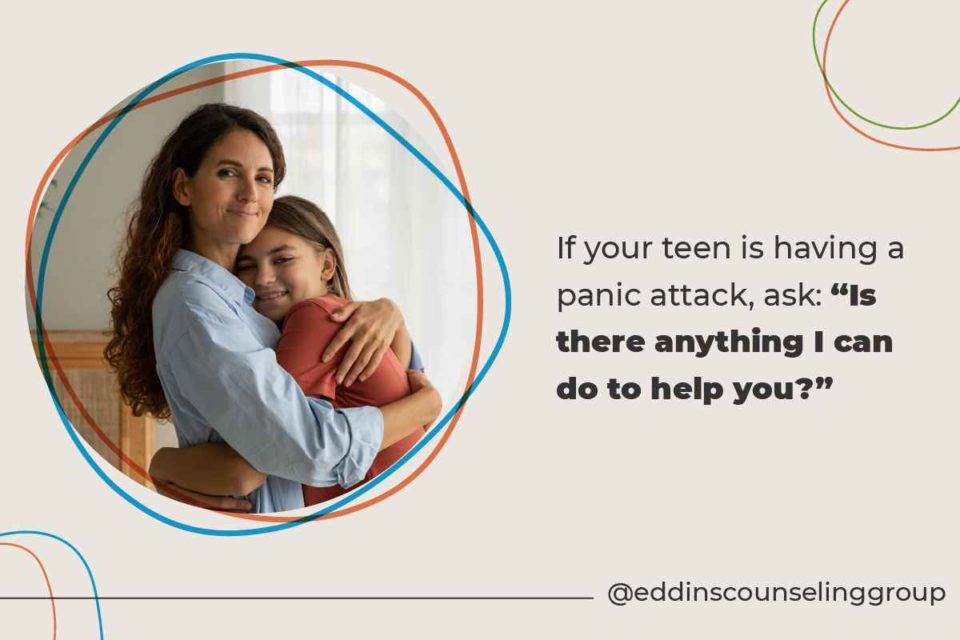
Talking about anxiety with them.
This is where the parents end up talking about the anxiety. So another way to help is to give your input and then just let them talk because I think you’ll learn a lot about them when you hear about what their anxiety is. You just open that door if they seem anxious and want to talk about it. I think that knowing that and feeling anxious and not reaching out to let them know that that door is open.
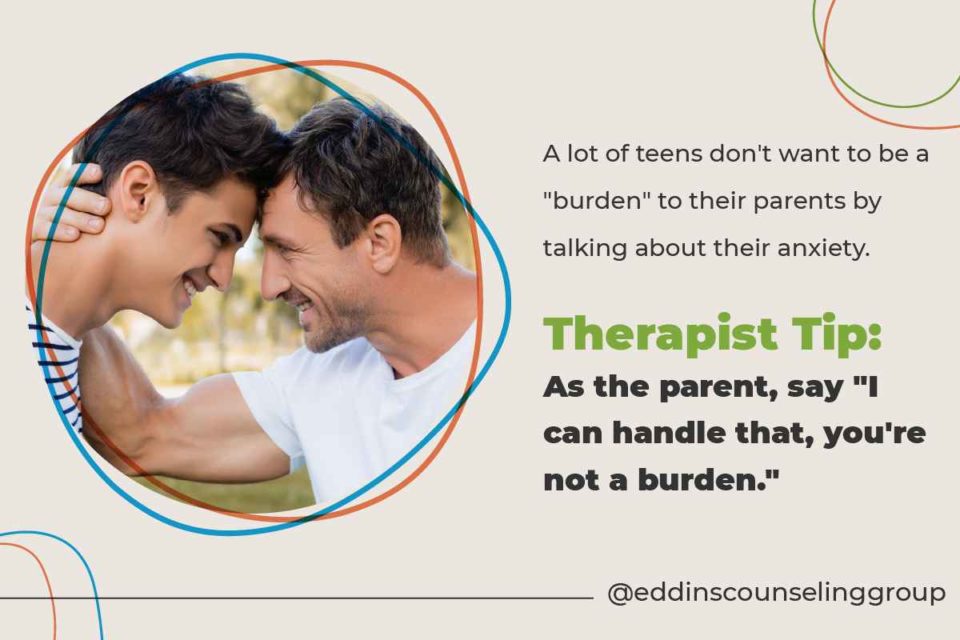
Comment from a parent:
“I’ve actually used that with my son. When I see that he’s struggling with something, I try and talk to him before he goes to sleep. To see how his day was going and if there was anything I can help him with. I also go through this phone and ask if everything is ok. Even though he won’t talk to me, I know something’s wrong. Two days later, he comes to me. When I ask him, he doesn’t want to talk because he’s not ready. So, I have to wait for him to be ready. At first, I would keep doing what I am doing, but then, because he is trying to communicate with me, put whatever I am doing to the side. Sometimes as moms we are too busy and we just need to listen.”
Another way to help them is to pay attention to their feelings and stay calm when they’re anxious. I do a lot of family therapy and I can see the pain of the parent when the child is hurting. They see their kids start shaking and I can see parents start feeling that emotion and it works both ways.
If they’re anxious and that stirred something up in you, you’re elevating their anxiety.
There’s a lot of talking about feeling like a burden. The parents have their stress but from work. Now, even if they don’t act grateful, a lot of them, come and speak with me. They talk about how grateful they are. And they don’t want to be a burden to talk about their anxiety or talking about their struggles. Just opening that door and showing “I can handle that, you’re not a burden and it’s ok to open up about these things. It’s not going to hurt me”
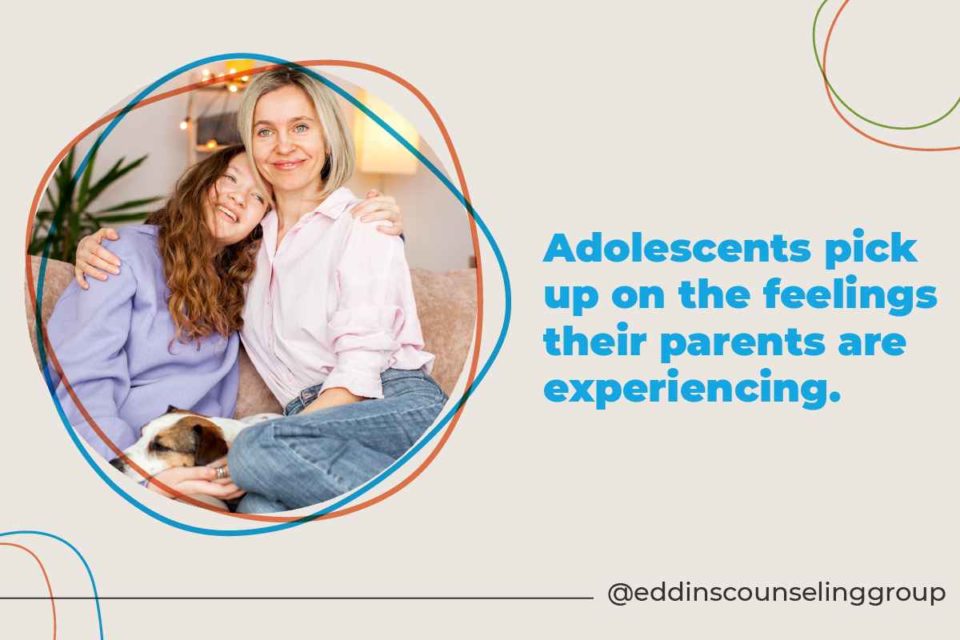
Not shaming them or punishing them for their anxiety or their inability to participate or complete a task.
So I like this example mentioned before. The child that doesn’t want to go to the dance. That’s coming from anxiety. Punishing him for not going will just make him feel worse about the anxiety. What the mother did was perfect. She said: “Well, I’m going to be there”.
So try to be conscious of that and then, when they are able to do something, you are taking it seriously. Say: “I noticed a change from last week and I see that you try and it’s been really hard.” Just validating, validating, validating! That can give them a bit more confidence and make them feel more comfortable.
Anxiety grows from avoidance, so any time they don’t avoid the behavior or kill the anxiety, we just want to push them to do activities that would make them anxious.
Keeping a routine while being flexible is another way to help your kids.
Keeping a routine and organization in life is great, but for some anxious people, perfectionists for example, if their routine gets thrown off, that can cause a whole other kind of anxiety. So being able to be flexible in the routine as well. Try to see things from their perspective and meet them where they are.
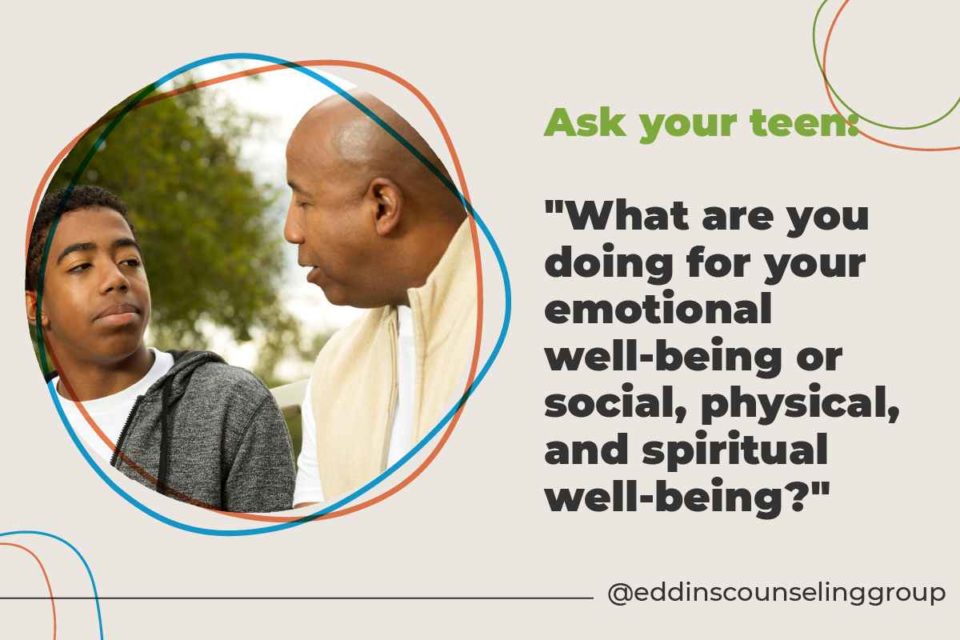
Are You Feeling Anxious?
Adolescents pick up on the feelings their parents are experiencing. That comes from them feeding off of their parents. You feel when they are anxious, but they also feel when you are anxious. You might not notice it specifically but they are part of you and they can feel it. And so just making sure you’re doing the things that help you stay calm. You are practicing your self-care, you’re talking to your friends so that your anxiety isn’t rubbing off on them.
Encourage Self-Care!
This is something I talk about in my first sessions with clients or when I meet students at schools. The first thing we talk about is the area of self-care. So what are you doing for your emotional well-being or social, physical, and spiritual well-being? What are you doing for yourself in each of these areas? And are you doing something every single day?
I ask them before they go to bed: “What did you do for yourself? Something that wasn’t for your parents, for your girlfriend, or for school? One thing that was just for you.” So that can be like 10, or 20 minutes in the shower, walking outside after lunch, or going to a football game. Anything that was just for them!
Increased health care decreases anxiety.
We can’t treat specific anxiety but what we can do is do more for ourselves. It’s hard to find free time, but it’s very important. I honestly tell them it’s more important to do something for self-care than to get an A or a B on a certain school assignment. You’re going to be a better student if you’re happy and healthy.
It’s hard to be a good student if you are anxious. Trying to calm them and make them feel better about themselves and their days are going to be a lot easier.
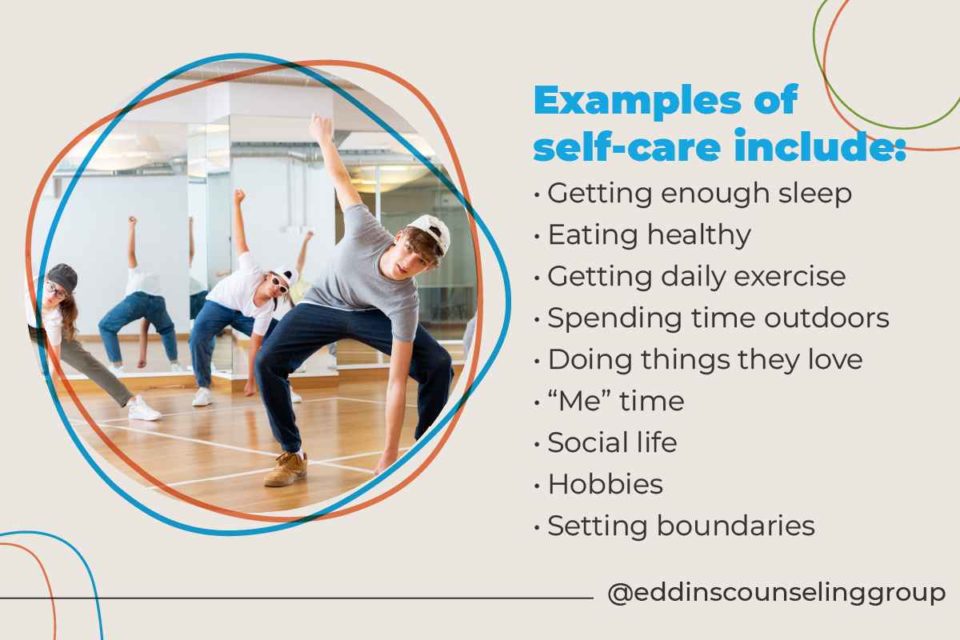
Examples of self-care include:
- Getting enough sleep
- Eating healthy
- Getting daily exercise
- Spending time outdoors
- Doing things they love
- “Me” time
- Social life
- Hobbies
- Setting boundaries
Do these things within reason. For example, video games can be your self-care but self-care doesn’t last for three hours.
Self-care is to make your life better. How do we take care of ourselves and still take care of the other responsibilities?
Encourage Relaxation
- Take breaks
- Grounding techniques
- Breathing exercises
- Meditation
- Listen to music
- Take naps
- Burn oils or candles
- Use a weighted blanket
- Coloring book
A good way is to encourage them to take breaks. Use grounding techniques, like naming five colors, or six cities. These are physical things. Or things they can see, hear and touch. Just kind of going through things that are present.
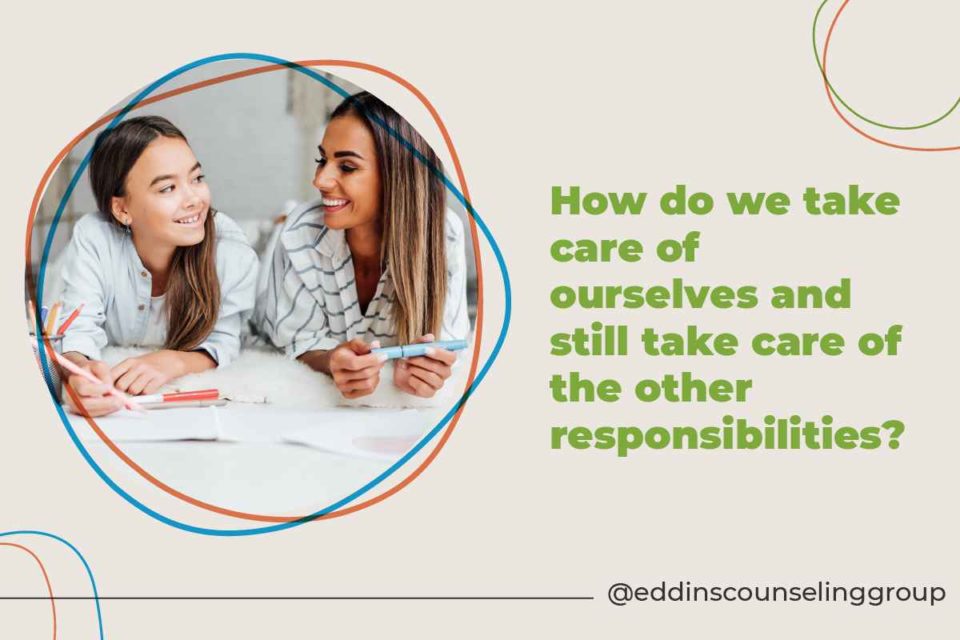
Anxiety is being worried about the past or worried about the future. We are not really feeling our current situation.
We work through these in session, but as a parent, there are some good grounding techniques everywhere. Work on one at dinner before praying and tell them to find different ways to incorporate these things into their lives.
Breathing exercises mean the same thing. Meditation or a specific kind of teen meditation. Someone might not like it. I find girls are more into it than boys, but you can throw it out there.
There is also a huge amount of oil, candles, and weighted blankets that are really great tools for anxious people, especially if they can’t sleep.
They can be expensive but they are so amazing. There are also coloring books, and that can also feel like a form of meditation.
Comment from a parent:
“What I used to do is ask them not to do anything for 10 minutes. Don’t touch the phone, just relax and look at the ceiling. I hoped that they will go into his day, his emotions, or his work for ten minutes. He doesn’t want to do it anymore. I tried again. I was pushing it and pushing it and we ended up arguing. I still think that that’s a good thing to do.“
That’s like the basis of childhood, a time out. The purpose of doing it is that you’re too emotional and need to take a minute by yourself not to do anything and calm down. So you are not going to tell a sixteen-year-old to take a time out but just go and do nothing.
So, no phones because the screens cause a lot of anxiety. They have to be on them for school and life but social media, the pressure of comparison, and how many likes they have increase anxiety. They post a photo and then they check it every five minutes. They keep refreshing it.
And that is all anxiety:
- Am I good enough?
- Am I pretty enough?
- Or, am I popular enough?
If they have just ten minutes to not worry about that, they can reduce their anxiety. Subconsciously they don’t even realize that not looking at their phone can reduce anxiety. I think you can understand that without that pressure for a few minutes, they can probably go and clear their head.
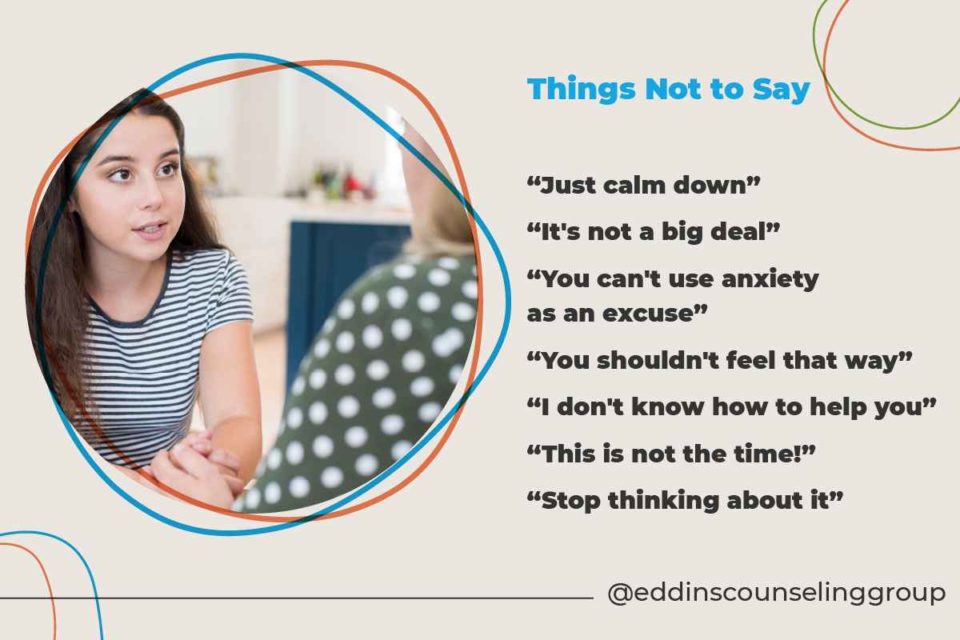
Things Not To Say
Things not to say include anything that takes away the seriousness of what they’re dealing with. So, even if you are talking about calming down, saying: “Just calm down”, as if it was that easy. Just stay away from saying: “It’s not a big deal”. I mean, anxiety is telling them whatever it is, as big or small as it may be logically, and emotionally feels like a big deal.
Kind of leveling with them. “Wow, this seems like a big deal. How can we handle this?” There’s validating the feeling of it being a big deal until we can get out of it. “You can’t use anxiety as an excuse”. I hear a lot from the teens, so it might be interpreted differently than it was meant, but that can be really hurtful.
I think it’s rare for somebody to have a mental illness as an excuse.
To try to do something alternative would be: “How can I help you do this? Is there anything I can do to make it easier for you to do this?” versus just being so frustrated with them not being able to do it that we jump in.
“You shouldn’t feel that way.” That also isn’t meant to come across as hurtful or offensive at all. They’re feeling anxious that they’re not going to get into college because they got a D in a class. Saying “You shouldn’t feel that way. A lot of people get into college with a lower GPA”.
“I don’t know how to help you”. That’s another feeding into their anxiety. That can just be your anxiety coming out. Like maybe you don’t know how to help them, and that’s ok. But saying “What can we do to get through this” or “I really want to help you”, instead of “I don’t know how”. Other things not to say include: “This is not the time!” or “Stop thinking about it”.
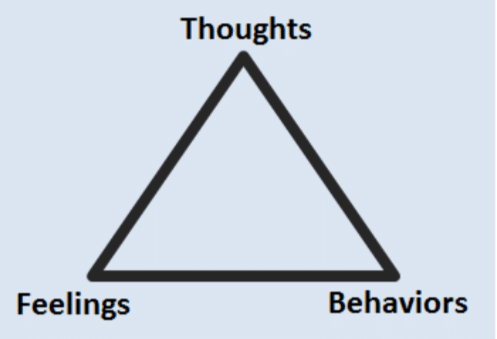
Help Them See Things Another Way
That’s what I use for anxiety. It’s a modality that I typically start with. It’s an evidence-based treatment for anxiety and this is a very simplified version. But I’m telling you this so that there might be ways for you to help them change their thoughts without doing real-life CBT or Cognitive Behavioural therapy.
When a situation happens it is at the top of that diagram. You have thought about the situation and our thoughts cause us to feel an emotion and then we behave based on our emotion. So that’s kind of the pattern.
I’ll give an example. A situation can be: I was walking down the hall at school and I waved at my friend and they kept walking. So that’s a situation that happened and you can’t change it. There’s nothing you can do about that.
The anxiety thought or the automatic negative thought we have is “they are upset with me, I must have done something wrong.” The feeling is anxiety, the behavior is avoidance. You just stopped talking to them and fail the next test because you are so upset about it.
In CBT what we would do is go back to the situation, acknowledge we can’t change it, and try and find an alternative.
Finding an alternative that would generate a more helpful feeling. So it’s not necessarily feeling great, but it’s feeling less anxious. An alternative thought would be: “Maybe they didn’t wear their contacts”.
You can think ”They must be going through something pretty tough. They looked too preoccupied”. You could feel empathetic and text them. That’s kind of what I go through in sessions with them. Changing those thoughts in order to change the emotions.
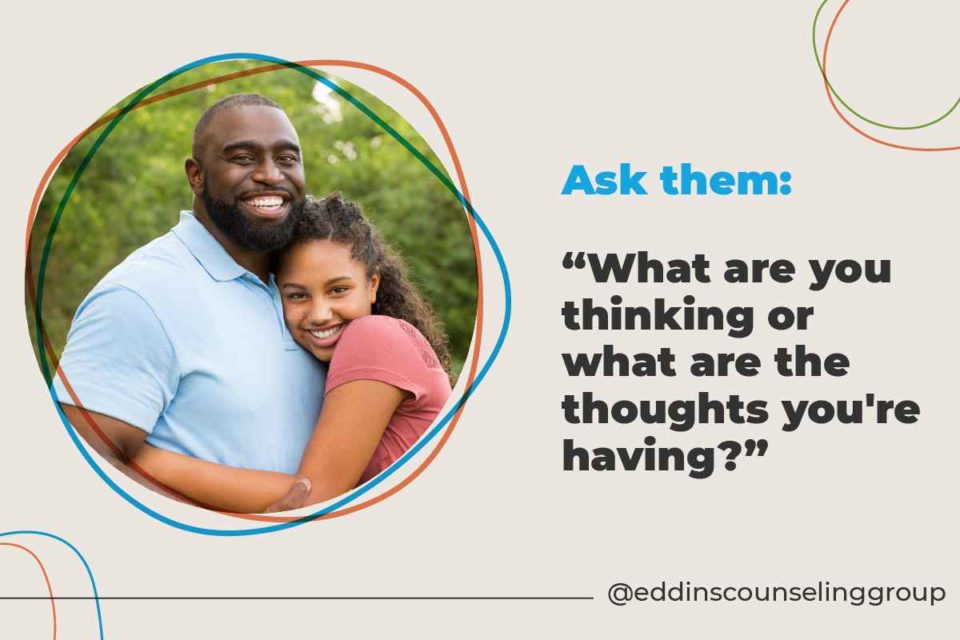
Ask Them: What Are You Thinking?
The reason why I explain this here, even if I am not seeing your teen, is that you can kind of do that while they’re talking to you about their anxiety. Ask them: “What are you thinking or what are the thoughts you’re having?” Things like “ I am going to fail the test, I’m not feeling good enough, I’ll never live up to my brother”, etc. We can figure out how to change that, to change the emotion.
Do you think that would be helpful? Is there any way that you think you can help them reframe those thoughts? And if they can, which I often do in the beginning stages of the treatment is offer alternatives.
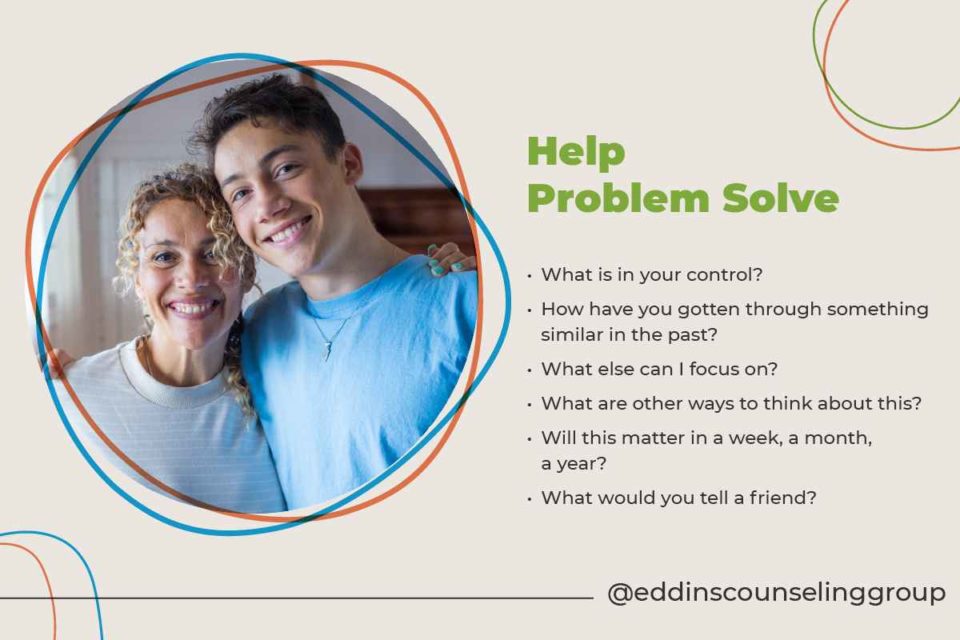
Help Problem Solve
- What is in your control?
- How have you gotten through something similar in the past?
- What else can I focus on?
- What are other ways to think about this?
- Will this matter in a week, a month, a year?
- What would you tell a friend?
Another way to handle anxiety if they’re not coping through exercise or deep breathing is to help them problem-solve. Is this anxiety something we can work through? Can we change the situation at all?
Here are some questions we could ask: Is this in your control? If the answer is no, we move to coping. If it is in our control, what can we do? Just try to fix the problem if it is in their control. Have you gone through something similar in the past? And that’s something that I have to really stick with them. You must have felt something similar before and tried to work through it. They might be able to build a little bit of confidence around how they’ve gotten out of a similar situation or feeling in the past.
What else can I focus on? That kind of goes along with this one: Will this matter in a week, a month, a year? Know that this is really hard right now, but do you remember the first time you embarrassed yourself? Do you remember the first time you brought a bad grade?
So it’s kind of like zooming out.
Anxiety is very intense and hyper-focus.
And if we can help them zoom out and slow down, they may be able to kind of get out of it and take away some of the power that their thoughts are having. And if they’re struggling with the same thing, how would you help them? What would you tell them?
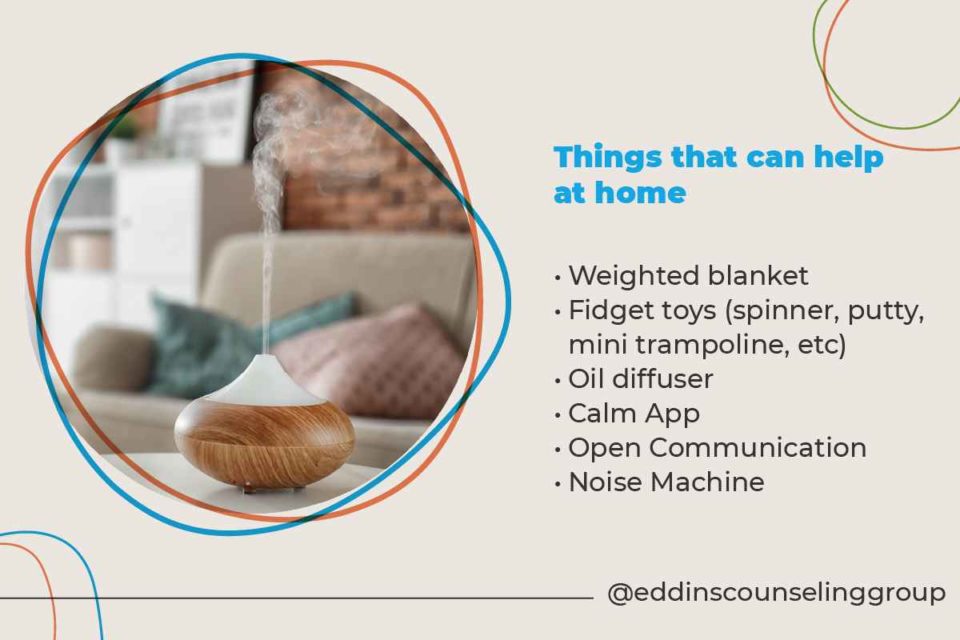
Things That Can Help at Home
- Weighted blanket
- Fidget toys (spinner, putty, mini trampoline, etc)
- Oil diffuser
- Calm App
- Open Communication
- Noise Machine
These are just some little things that I think would be helpful that they can have at home.
Questions
I am open to any questions. If you have any specific examples that you want to work on.
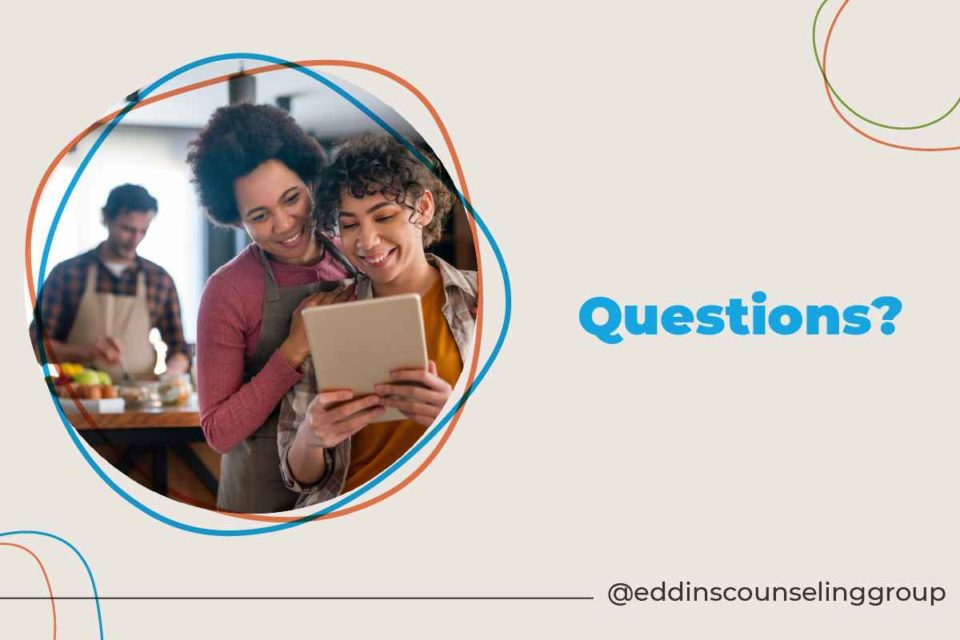
Comments from a parent:
“Kids with ADHD also have anxiety. And medication decreases their symptoms of anxiety, right?”
Actually, a lot of times medication will increase anxiety. A stimulant of anxiety is high blood pressure or fast heart rate. A lot of times a stimulant will actually increase anxiety even for kids with ADHD. I mean, I’m not a medical doctor, but you can always go to a psychiatrist or your primary care if you had specific questions about a specific medication.
A stimulant can actually increase anxiety for someone with ADHD.
You could try Ritalin. And if they’re really anxious, but they can focus, they might put them on a different medication if it works. But that’s the thing about medication, it’s very case-to-case. It’s hard to know what you’re thinking.
“When teens go to a consultation they will be given tools to help them deal with their anxiety. How bad anxiety has to be in order to decide that they need medication instead of just therapy? Do they have to go to a psychiatrist or their therapy will be enough”
I’m a conservative on medication, and it is very, very, very rare that I would see somebody less than eight sessions before I recommend a psychiatrist. That happens when there are kids that can’t sit in their own skin and coming and talking is making them more anxious and we can’t do any more work. But therapy is different. I always try thought and behavioral interventions first.
Sometimes people are so anxious that they need that medication in order to even expose themselves and practice those tools.
“We all grew up and had anxiety. But now, anxiety is out there and seems to be hitting all the kids. Is it society that’s doing it? Is it our schools? Is it private schools that want to get more students so they get so many kids on scholarships and so they’re pushing PSAT scores and all this other stuff? And, you know, it’s good for the schools. But I don’t know that it’s necessarily good for kids that they keep pushing them to do that and pushing them to fill up so many college applications so that they can pump up their numbers. So, I mean, is it just something that evolved or why is it all of a sudden?”
I mean, we are all from different generations. I didn’t graduate high school that long ago. And to me, being in a high school now feels like there’s a lot more pressure than there was when I was in high school. I didn’t have my iPhone in high school, and there was only MySpace which was still stressful. I can’t imagine being in school with an iPhone.
Also, school shootings are another thing. It’s so weird being in the school and having active shooter drills. It’s something I’ve never experienced as a teen. I don’t know how scary that is.
There is also a lot more pressure not to go just to college. Bachelor’s degree doesn’t do much anymore. I think there’s a lot more pressure on grades and their future. And all of our accomplishments are show on social media. And the comparison isn’t just at school. The comparison is at home. as well. Everybody had comparisons for body image, but now it’s everywhere. So I think those are the main thing.
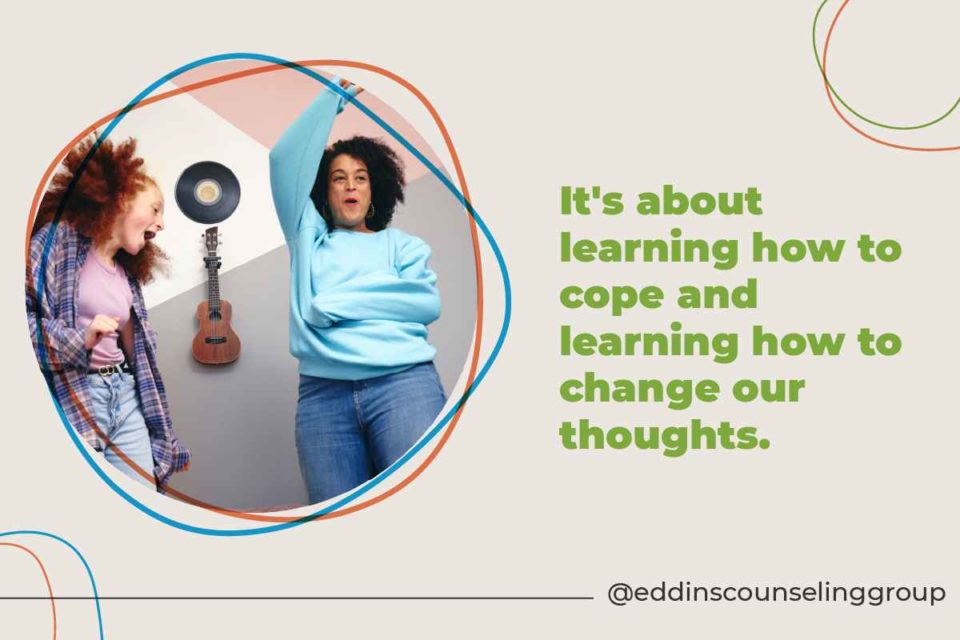
I think a good side of it is we’re talking more about mental health in schools.
And I know we have a special department now, which wasn’t before. So I think mental health is just more talked about. We take it a bit more seriously, but I also do feel like the demands are higher. There’s more stress.
“The kids today can Google anything and look anything up. It’s stressing them out that they can have that availability to do it. I think that’s always at their fingertips. When my daughter’s phone buzzes and she’s trying to do homework. I say: “it is not that important. You just put it away. But you kind of start giving into it because, you know, they have to be on their tablets or computers for schoolwork. But everything’s at their fingertips now. And I think that leads to a lot of their anxiety because they can see whatever they want and they don’t know how to get away from it. They can’t put it down. It’s either in their right hand or left hand.”
We do the same mistakes as parents by always checking their grades, 24/7.
“I’ve noticed as a parent when I was checking it too much, it gave me anxiety. I can only imagine watching these numbers go up and down and asking “Am I good enough compared to my peers? Am I going to a good school? Or, are my parents going to be proud of me? “
There’s so much more than just a grade. It’s how people judge them. I mean, we can’t change society but just doing the little things at home like reminding them they’re on their own path.
Trying very hard to not compare them to peers or siblings because they’re on their path.
Hearing it from a parent is important that they are doing the right thing. And they’re not their peers, or their siblings.
“Do you do group sessions with a group of teenagers or are you going one on ones?“
What I’m currently doing is groups of kids at the school and then here I see individuals. I’m trying to start a teen anxiety group where we work through CBT. So but it’s not as much of a process but an open communication about our issues. It’s about learning how to cope and we learn how to change our thoughts. I’m trying to start that, but it’s really difficult to get anybody consistently with football practice and the piano and dance. But yeah, here I work with individuals. I see them for 45 to 50 minutes, usually, once a week to start and then hopefully more.
I have a lot of group experience. And there is a way to get your teen into a groove. I mean we’re hoping to start them here. We have a couple on Saturdays. DBT was developed for personality disorders, such as anxiety. But I think anybody can benefit. It’s all skill-based. They learn how to regulate their emotions, and be mindful.
I can do a 15-minute consultation with you or any of your friends, siblings, or kids who need a therapist. I also do parent counseling if you need any additional tips. I do work evenings, and Saturdays but I can write doctor’s notes if the kids need to get out of school. Prioritizing their mental health is something I obviously advocate for.
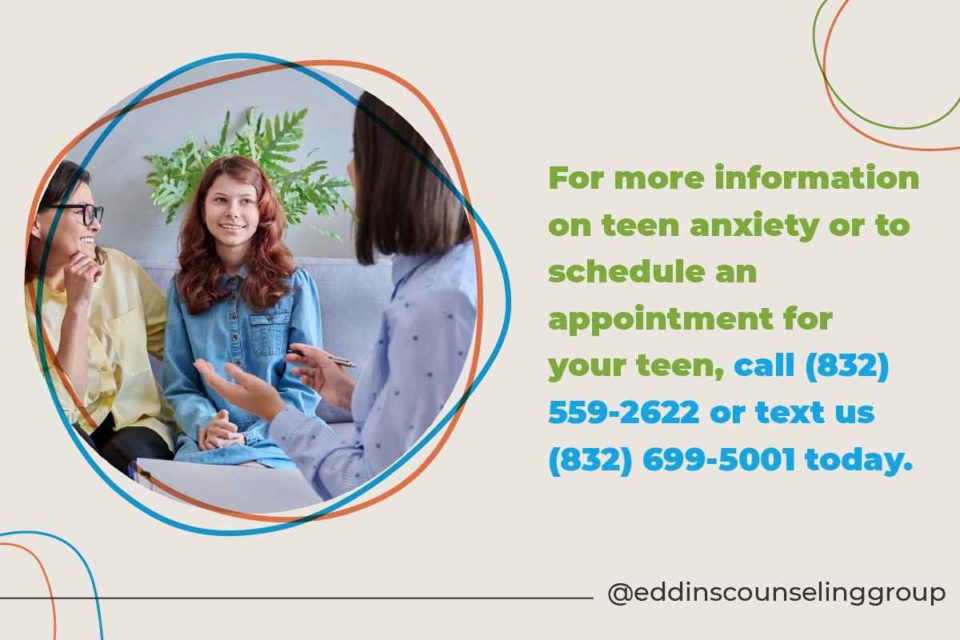
Here, at Eddins Counseling, we treat different clients. We have tons of therapists with tons of different specialties. So feel free to review our website if you need help with any other issues.
We have these talks once a month when a therapist talks about whatever their specialty is.
“If someone comes to see you, do you spend two or three weeks getting to know them or do you start giving them tools right away, knowing they have anxiety?”
It depends on the kid. I can dig in quicker than a lot of people because I know adolescents so well. I think my looking young works for me. So I think I can start earlier than a lot of people. But there’s a definite report building between the first meeting and all the diagnostic evaluations. And so that’s where I kind of interview and then set up a diagnosis or just kind of treatment plan goals. In the first session, I offer tips where appropriate, but the real work starts the first session.
5 Ways to Reduce Anxiety
Get instant access to your free ebook.
Grounding & Self Soothing
Get instant access to your free ebook.
Create Healthier Thoughts & Feelings
Get instant access to your free ebook.
Why You Feel This Way
Get instant access to your free ebook.

